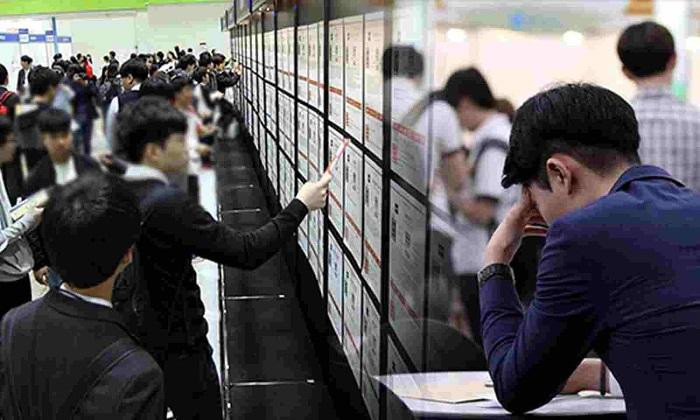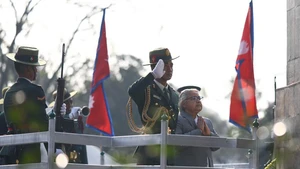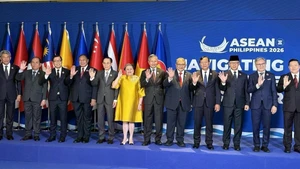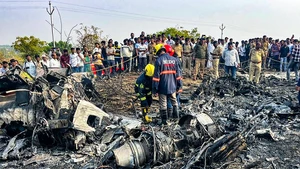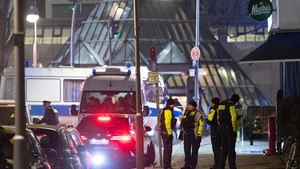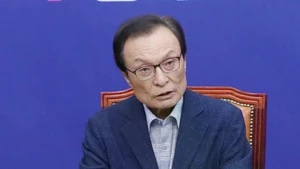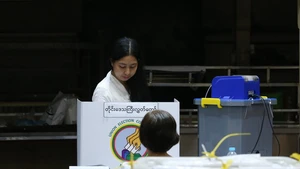* Leaders of the Shanghai Cooperation Organisation called for a "balance" between reducing carbon emissions and allowing poorer states to catch up with economically developed countries in a joint statement on climate change adopted on Friday.
* India will take over the rotating presidency of the Shanghai Cooperation Organization (SCO) in 2022-2023, the 22nd meeting of the Council of Heads of State of the SCO announced in Samarkand on Friday.
* Azerbaijani President Ilham Aliyev told Russian President Vladimir Putin on Friday that a border conflict between Azerbaijan and Armenia this week had "stabilised", and a ceasefire had been in place for the last two days.
* Despite legal action from the European Union (EU), the United Kingdom (UK) said on Thursday that it will continue with its pause on border checks on goods between Great Britain and Northern Ireland.
* Israel closed on Thursday night the registration for political parties intending to run in the upcoming parliamentary elections.
* Iranian President Ebrahim Raisi said to make progress in the ongoing nuclear talks, the removal of US sanctions on Iran should be accompanied by guarantees and the resolution of safeguards issues, official IRNA news agency reported on Friday.
* Cambodia reported 1.13 million air travelers during the first eight months of 2022, up almost 600 percent compared to the same period last year, a senior official said on Friday.
* The Republic of Korea's automotive export logged a double-digit growth last month due to solid demand for eco-friendly vehicles, government data showed Friday.
* Lebanon's parliament on Friday suspended talks on the 2022 budget after a walk-out by lawmakers sent attendance below quorum, further delaying efforts to complete requirements to access IMF funds to relieve its economic crisis.
* European Union countries must act together to address the acute energy crunch driven by soaring prices, from cutting electricity consumption to jointly buying gas, European Council President Charles Michel said on Friday.
* The Japanese government said Thursday it plans to ask households and companies to save electricity this winter as a national power crunch continues.
* Brazil's government upgraded its economic growth forecast for 2022 from 2 percent to 2.7 percent, the Economy Ministry's Economic Policy Secretariat said Thursday.
* There are no signs of an economic recession in Italy, although growth is slowing as the country faces inflation and rising energy prices, Prime Minister Mario Draghi said on Friday.
* Slovenia's economy will expand by 5 percent this year, the government's macroeconomic institute (UMAR) said on Thursday, improving its April forecast of 4.2 percent growth.
* The Czech Republic's defense spending could reach 2 percent of gross domestic product (GDP) by 2024, a year earlier than previously planned, Prime Minister Petr Fiala said here on Thursday.
* Türkiye's tourism is booming as European tourists choose to spend the upcoming winter in the Middle East country under the clouds of the energy crisis. However, the thriving sector doesn't bring in anticipated profits.
* Oil exports from Iraq's Basra Port were halted last night due to a spillage, oil sector sources said on Friday, adding that efforts to contain the spill could last more than a week.
* The Australian Renewable Energy Agency (ARENA) has announced funding for the nation's first large-scale hydrogen plant.
* A massive fire engulfed a high-rise office building in downtown Changsha, capital of China's southern province of Hunan, on Friday afternoon, state media reported.
* The European Union saw 16% more deaths than usual in July as a record-breaking heatwave hit parts of the continent, its highest monthly figure so far this year, official data showed on Friday.
* A powerful typhoon is expected to approach southwest Japan during the weekend, likely bringing violent winds and heavy rain, Japanese weather officials said on Friday.
* At least 22 people were killed and nine others injured in heavy monsoon rain-triggered flash floods in the last 24 hours in Pakistan, the National Disaster Management Authority (NDMA) said.
* Around 90 countries where monkeypox is not endemic have reported outbreaks of the viral disease, which the World Health Organization has declared a global health emergency, as confirmed cases crossed 60,200 and non-endemic countries reported their first related deaths.
* Mainland China's southwestern municipality of Chongqing reported one case of the monkeypox virus infection on Friday in one individual who arrived in the country from abroad, marking the country's first known monkeypox infection.
* Europe's medicines regulator has backed using AstraZeneca's AZN.L preventative COVID-19 therapy as a treatment for the disease and also endorsed another medicine as a preventative option for another common virus.
* Demand for booster vaccinations against COVID-19 is low in Germany, the association of general practitioners said on Thursday, with some patients waiting for a booster designed to combat the currently circulating Omicron BA.4/5 subvariants.
* The COVID-19 pandemic is still a threat on the African continent given low vaccination rates, the acting director of the Africa Centres for Disease Control and Prevention (Africa CDC) said on Thursday.
* The COVAX facility, backed by the World Health Organization (WHO) and the Global Alliance for Vaccines and Immunization (GAVI), has delivered 1.72 billion COVID-19 vaccine doses to 146 countries, GAVI data shows.
* Two COVID-19 antibody therapies are no longer recommended by the World Health Organization (WHO), on the basis that Omicron and the variant's latest offshoots have likely rendered them obsolete.
